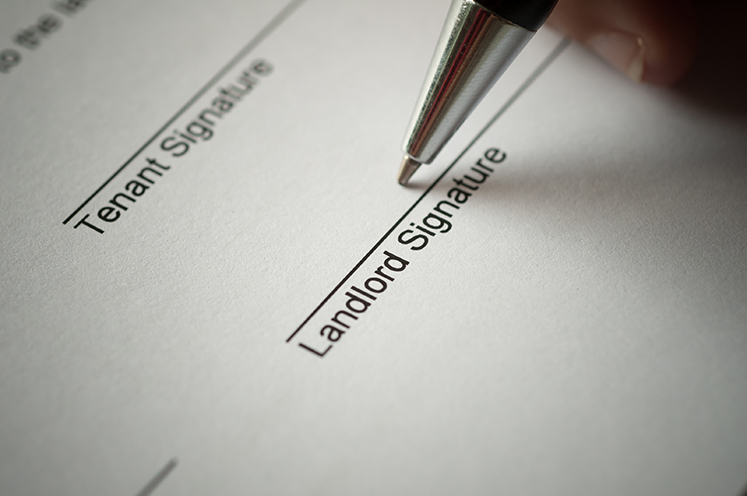So you are thinking of signing up for a new lease. Maybe this is for your new business venture or perhaps you are expanding your empire?
You have engaged an experienced commercial solicitor, so you don’t need anyone else’s assistance, right? Wrong! What are the key pitfalls to avoid and the main things to consider?

Know what you are taking on and future proof
So you have identified a commercial premises that fit the bill for your business venture, congratulations! If you are wise you will also have found a specialist commercial solicitor familiar with the standard leases and savvy enough to understand the many hybrids and variations doing the rounds? Is that enough? Well it’s a start…….
Depending on the type of agreement, and more critically the specific wording contained within it, how this agreement is written can have a significant impact on business or even personal responsibilities going forward.
- Do you really understand your obligations when it comes to what is included within the lease both physically and by implication of the wording of the document?
- Do you understand the condition of the building and the various elements (roof, walls, internal finishes, fixtures and fittings?).
- Do you know who is responsible for repair, replacement or insuring these items or is there a service charge and what does it include?
- Has you solicitor really sat and explained your obligations in the context of the building you are considering?
- Have they seen and understood your particular building?
- Can they advise how to protect you from costly future repairs and replacements by negotiating the right clauses and wording to protect your long term position?
A solicitor will be able to advise you on the Law of Property and Contractual elements of the lease, after all this is what you are signing – a Legally Binding Contract between two parties. As experts in this field GWE Property are able to work with you to introduce a myriad of options that can form part of the negotiations at the outset before anything is signed, we have found that an expert, commercially astute surveyor can help negotiate and advise and save you a fortune in the future.

1. Negotiate hard and make sure its documented
So, we would always advocate for a survey/inspection to understand and document the current condition of the building and to determine the remaining useful life of the elements forming the building. Well as a property consultant we would, wouldn’t we?
We would always recommend, through a detailed evaluation of the lease clauses, to clarify who is responsible for what to ensure that the responsibility for these repairs and replacements sit with the most appropriate party. The main difference is that we consider this within the context of the building and its current condition, something your legal team will not be able to do. It is, after all, the relationship between the building and the contract that is where the complexity begins and where the disaster lays if you don’t know what to look for. It’s a bit like sailing a boat on the sea, its fine if you know where the rocks are. If you don’t know where to look or what to look for and take corrective action, it’s all a bit of a disaster isn’t it?
We are like the wise old sea dog; we know where the rocks are and what to do to avoid them. If the proposal is that the responsibility sits with the tenant we will advise on cost, approximate year of replacement and if possible, negotiate an exclusion or limit the tenant’s liability through producing a schedule of condition.
We would make sure that the lease terms reflect these agreed variations and that the appropriate wording is included or excluded to guarantee clarity through the life of the agreement regardless of who the parties are.
2. Think about the end at the beginning
Depending on the term (length) of the agreement you may be signing up for it may be likely that the landlord you commence your agreement with may not be the same for the whole of the lease. Similarly some commercial agreements allow ‘assignment’ of the tenants interest too. You will often find Commercial property ownership is traded depending on market conditions so it is vitaly important that any agreements made are documented, appropriately. Ideally that will be at the beginning but given things can change during an agreement this should be done to ensure a painless and straightforward departure.
Whilst it is perhaps odd to think about things in these terms perhaps consider what would happen if you ended up in the worst of disputes with your landlord, do you believe that the agreement would be crystal clear if things turned nasty? Are verbal undertakings or commitments documented and would someone else agree with them if they are not?
In terms of repair it may be that the lease asks you ‘repair, replace or renew’ regardless of current condition. Would you be happy to give your landlord a ‘new’ property back at the end of the agreement?
Sometimes work needs to be undertaken to alter or fit out the building, it is important that this is managed and documented appropriately to ensure you dont breach a clause precluding alterations and to minimise financial pain at the end of the agreement.

3. Ensure you comply and ensure your landlord does too
Once you know what you are agreeing to do, make sure you do it. Sounds simple but often people dont for a number of reasons. Their business focus takes over, they get busy or they simply forget – make sure you comply because, in many cases, you may find yourself with a large bill!
Some agreements contain clauses that allow a landlord to come in and execute works on your behalf and recharge you. I have yet to see a landlord or agent who will be super competitive when it comes to work undertaken in this nature – add in the inevitable management fee and markup and things can get very rediculous equally as quickly! If things get very serious and the breach of a repairing clause warrants it this can create a situation where the landlord can legally terminate your agreement or take possession of your site – neither are desirable.
If you are paying a service charge for maintenance works understand what these are, the frequency and so on. Obligations often run two ways and are reciprocal so knowing what your landlord should be doing and when can ensure your buisiness can operate from an optimal trading environment.
If the service charge relates to legal compliance issues it is even more important to ensure this work is being undertaken in a timely and prompt manner to ensure a safe and healthy environment for you to trade.
4. Ensure you have a happy ending
As we said earlier always consider how you would like the day after your last day of occupation to be? Would you like to ensure you are delivering up the property in a manner that is acceptable to your landlord. By doing so you will be walking away without any ongoing liabilities and in turn not be leaving your landlord in a less than favourable position either.
Whilst it is not a well-known thing Commercial Landlords can apply a legal mechanism of ‘mesne profit’ which effectively is the losses sustained due to the state of the property at the end of the agreement. This means any loss of rental income can be claimed from an outgoing tenant – not an ideal situation to be in.

5. Start as you mean to go on
By understanding, in the round, not only the responsibilities you are signing up to but also the liabilities you are taking on you will be able to focus on delivering your business objectives from the building you occupy.
By giving a little consideration to the financial and operational consequences you may face going forwards you will ensure that you are not faced with a huge bill or legal battle during or at the end of your agreement.
By going in blind or on a hurry you may find yourself in a huge mess distracting you away from your core business and adding a great deal of stress to an already stressful situation
GWE specialise in assisting commercial tenants during negotiation ‘Pre Lease’ stages. We also represent many commercial tenants with interim schedules, licenses to alter and enforcement of repairing obligations.
Finally, we are often involved in evaluating and responding to terminal schedules of disrepair to ensure any claim is settled in an effective and appropriate manner.
